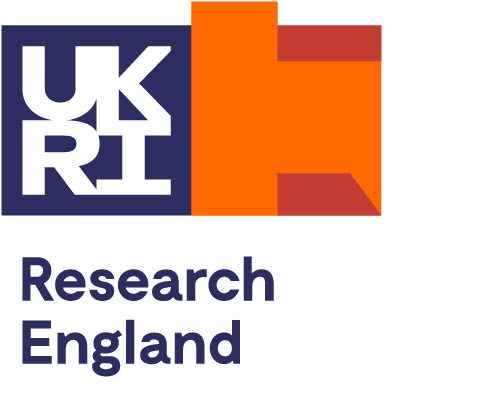Research England is undertaking a programme of work to improve understanding of how formula-based research funding is used by higher education providers (HEPs).
By ‘transparency’, we mean how Research England collects and provides information on how HEPs use their strategic institutional research funding (SIRF) and why they choose to use it in the ways they do.
To achieve this, we are working collaboratively with the higher education sector to pilot and implement a new annual process to gather evidence and insights into how HEPs use their formula-based research funding.
Why we are carrying out the Transparency Programme
The Transparency Programme will increase our understanding and evidence of how SIRF is used. It will support accountability for SIRF to government and enable Research England to strengthen its case for funding.
The Transparency Programme also forms part of UKRI’s response to the 2021 Nurse Review of Research Landscape and reflects a key commitment in Research England’s strategic delivery plan.
The programme is intended to give an overall picture of the uses of SIRF across the higher education sector and is not a regulatory activity. It is not intended to monitor or assure the use of individual HEPs’ funding, and we will not request detailed financial information on SIRF spend. We recognise the importance of minimising administrative burden and protecting institutional autonomy throughout this process.
What the programme covers
The Transparency Programme will cover the following quality-related research (QR) funds and ring-fenced funds:
- mainstream QR
- QR research degree programme supervision fund
- QR charity support element
- QR business research element
- Specialist Provider Element
- Policy Support Fund
- Participatory Research Fund
- Enhancing Research Culture Fund
Programme delivery
We are delivering the Transparency Programme in two phases.
Phase one: pilot evidence-gathering exercise
Research England has developed an annual evidence-gathering process, informed by engagement with a diverse selection of HEPs.
In academic year 2025 to 2026, we are inviting all English HEPs to participate in a pilot exercise to trial a new evidence-gathering approach. The exercise will ask HEPs to provide quantitative and narrative evidence on how they use their formula-based research funding allocations during the 2025 to 2026 academic year, across broad categories of activity.
We strongly encourage HEPs to participate in the pilot to help Research England shape the design of the Transparency Programme and to familiarise themselves with the process.
Participating HEPs will be grouped to trial two different methodologies for collecting data. This will allow us to evaluate which approach works best across the sector. HEPs will be directly informed of which group and data collection methodology they have been assigned to by Research England.
We are undertaking a real-time review of the pilot, which includes a survey available to all participating HEPs and semi-structured interviews with a small group of providers.
Complete the transparency pilot exercise feedback survey on behalf of your HEP
The survey opened in January 2026 and will close on 30 June 2026.
We will use the pilot returns and feedback gathered to refine the process (including the template and guidance) before it is implemented as an annual activity.
Take part in the pilot exercise
Subject to the feedback from the pilot, the process is likely to be implemented from academic year 2026 to 2027 and will be announced alongside a summary of the findings from the pilot year.
Register for our webinars to learn more about the pilot:
If you aren’t available to attend a live webinar, you can watch a recording:
Phase two: institutional strategic approaches to SIRF
In phase two, our vision is to work with the sector to identify a range of strategic approaches to SIRF taken by providers.
This phase of the Transparency Programme will provide evidence on how flexible formula-based funds enable HEPs to:
- deliver their institutional strategies
- address important challenges
- create impact and value from public investment that contributes to the research system, wider economy and society
Equality, diversity and inclusion
An understanding and consideration of equality, diversity and inclusion runs through the planning and delivery of the Transparency Programme.
The equality impact assessment (EIA) informs the development and delivery of the programme. The current version of the EIA considers the possible impacts of our approach to sector engagement during phase one of the programme’s delivery. It is a live document and will be updated as the programme progresses.
See the transparency programme equality impact assessment
Ask a question about the Transparency Programme
Email: researchpolicy@re.ukri.org
Last updated: 8 January 2026


